Search Results for: Forests
Skip to resultsCan’t find what you’re looking for? Visit our FAQ page.
5,531 results for: Forests
-
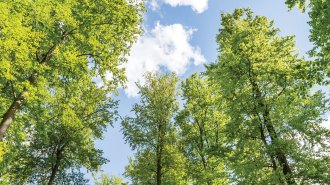 Environment
EnvironmentWhy planting tons of trees isn’t enough to solve climate change
Massive projects need much more planning and follow-through to succeed – and other tree protections need to happen too.
-
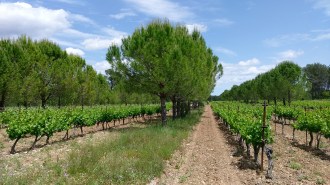 Earth
EarthMixing trees and crops can help both farmers and the climate
Agriculture is a major driver of climate change and biodiversity loss. But integrating trees into farming practices can boost food production, store carbon and save species.
-
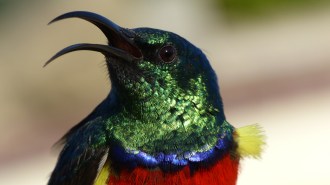 Animals
AnimalsSunbirds’ dazzling feathers are hot, in both senses of the word
Iridescent feathers reflect vivid colors. But they also become scorching hot in the sunlight, a study finds.
By Jake Buehler -
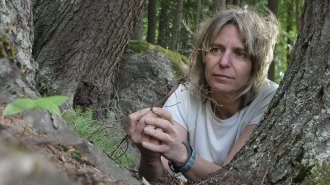 Science & Society
Science & SocietyAn ecologist’s new book gets at the root of trees’ social lives
In ‘Finding the Mother Tree,’ Suzanne Simard recounts how she discovered hidden networks in forests.
-
 Health & Medicine
Health & MedicineWhy only some people will get COVID-19 booster shots at first
In the United States, boosters may next go to people 65 and older, those at high risk for severe disease and people whose jobs put them at high exposure risk.
-
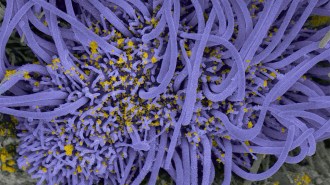 Health & Medicine
Health & MedicineThe coronavirus cuts cells’ hairlike cilia, which may help it invade the lungs
Images show that the coronavirus clears the respiratory tract of hairlike structures called cilia, which keep foreign objects out of the lungs.
-
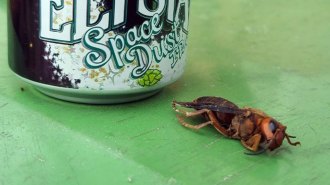 Animals
AnimalsFocusing on Asian giant hornets distorts the view of invasive species
2021’s first “murder hornet” is yet another arrival. This is the not-so-new normal.
By Susan Milius -
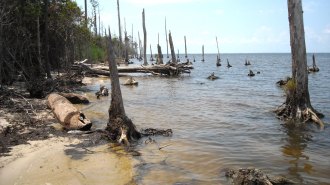 Climate
Climate‘Tree farts’ contribute about a fifth of greenhouse gases from ghost forests
Greenhouse gases from dead trees play an important role in the overall environmental impact of ghost forests, a new study suggests.
-
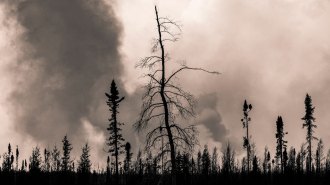 Climate
Climate‘Zombie’ forest fires may become more common with climate change
Wildfires that survive winter underground can flare up after warm summers and account for more than one-third of the scorched ground in some regions.
-
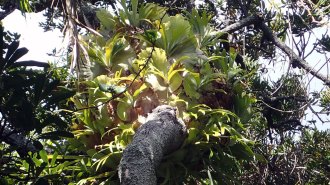 Plants
PlantsThese ferns may be the first plants known to share work like ants
Staghorn ferns grow in massive colonies where individual plants contribute different jobs. This may make them “eusocial,” like ants or termites.
By Jake Buehler -
 Animals
AnimalsUrchin mobs team up to butcher sea stars that prey on them
Urchins are important herbivores in nearshore ecosystems, but are not strict vegetarians, with hunger that extends even to munching predatory nemeses.
By Jake Buehler -
 Climate
ClimateMangrove forests on the Yucatan Peninsula store record amounts of carbon
Dense tangles of roots and natural water-filled sinkholes join forces to stockpile as much as 2,800 metric tons of carbon per hectare in the soil.